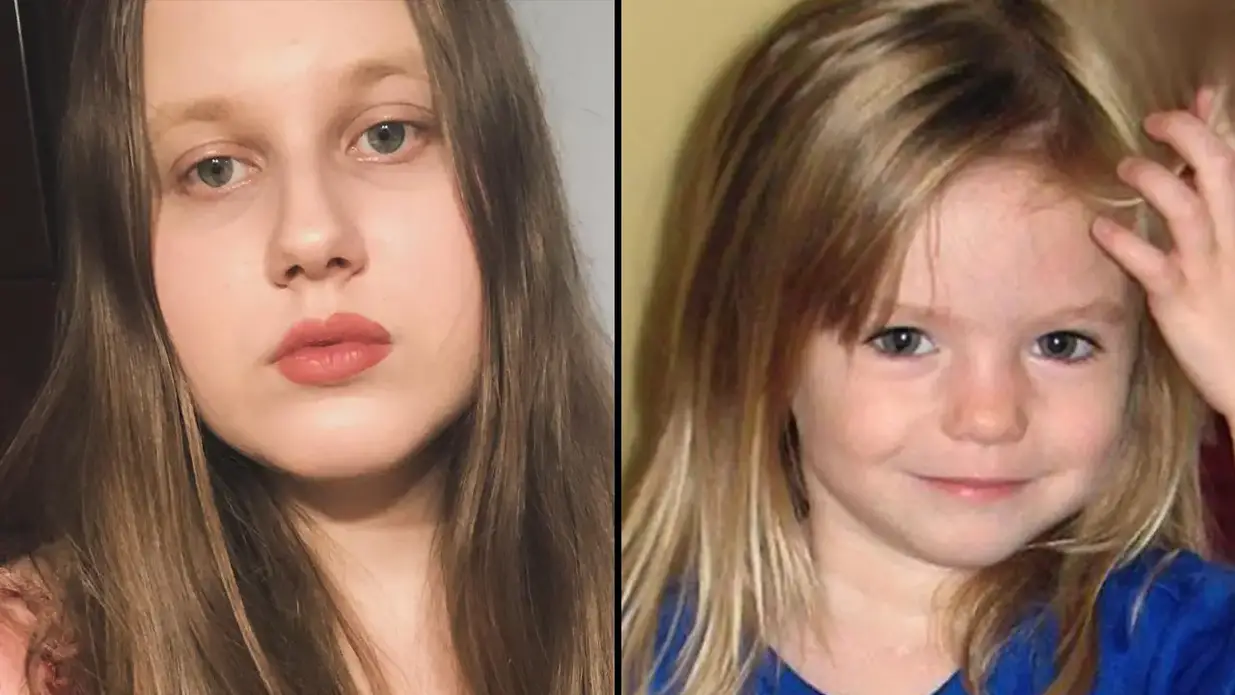A woman who claims to be Madeleine McCann has shared a new update about her identity following an alleged meeting with Kate and Gerry McCann. Julia Faustyna, a Polish woman in her early 20s, sparked international attention earlier this year when she claimed on social media that she could be Madeleine McCann, the British toddler who disappeared in Portugal in 2007. Julia cited physical similarities, including a distinctive eye marking, and gaps in her own family history as reasons for her belief. Despite widespread skepticism, Julia recently revealed the results of DNA testing aimed at determining whether she could indeed be Madeleine.
The DNA results reportedly show no genetic connection between Julia and the McCann family. In a recent social media post, Julia confirmed the outcome, expressing her disappointment but vowing to continue searching for answers about her true origins. “The results have shown that I am not Madeleine McCann, but I still do not know who I am or where I come from,” she wrote. Julia claims that the testing also revealed discrepancies in her lineage, fueling her suspicions that she may have been adopted or abducted as a child. She has now shifted her focus to uncovering her real identity and understanding her past.
Julia had previously shared her belief that she could be Madeleine based on a lack of childhood documentation and inconsistencies in her upbringing. She alleged that her parents failed to provide her with clear evidence of her early life, including a birth certificate or baby photos. Additionally, Julia pointed to physical similarities between herself and Madeleine, particularly a rare coloboma—a condition affecting the iris of the eye—that Madeleine was known to have. These claims, along with Julia’s persistence, led to international media coverage and prompted debates about the ethics of such public assertions.
Reports suggest that Julia may have met with Kate and Gerry McCann before the DNA results were revealed. Although the McCanns have not publicly commented on the claims, insiders indicate that they approached the situation cautiously, prioritizing their privacy and the sensitivity of the matter. The McCanns, who have spent over 16 years searching for their missing daughter, are believed to have cooperated with authorities to ensure that the matter was handled with dignity. While Julia’s claims ultimately proved unfounded, her story reignited global interest in Madeleine’s disappearance.
Critics have raised concerns about the publicity surrounding Julia’s claims and the potential harm caused to the McCann family. Many have questioned whether the situation was exploited for media attention or financial gain, as Julia’s social media following surged during the ordeal. Others have pointed out the emotional toll such claims could have on the McCanns, who have endured years of speculation and false leads. “It’s not fair to put the family through this again without substantial evidence,” one social media user commented. Julia, however, maintains that her intentions were genuine and rooted in a desire to uncover the truth about her own past.
Despite the controversy, Julia’s case has sparked broader conversations about missing persons and the need for greater support for those seeking answers about their identity. Advocates have highlighted how cases like Julia’s underscore the complexities of unresolved disappearances and the psychological impact on those affected. While Julia is not Madeleine, her story has reminded the world of the ongoing search for answers in the McCann case. As she continues to explore her own history, the spotlight remains on Madeleine’s disappearance, with investigators urging anyone with credible information to come forward.
